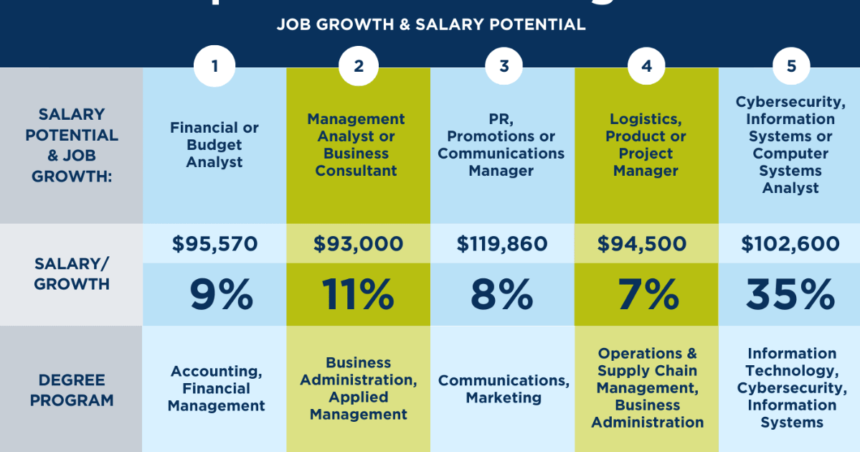Pursuing a bachelor’s degree is an exciting milestone, but one of the first questions that comes to mind is, “how long does it take to get a bachelor’s degree?” The answer depends on several factors, including the type of degree, your study pace, prior credits, and personal circumstances. In this article, I’ll break down everything you need to know about the time it takes to earn a bachelor’s degree in a way that’s easy to understand, whether you’re a high school student, a working adult, or someone exploring a career change. Let’s dive in!
The Standard Timeline: 4 Years for a Bachelor’s Degree
For most people, a bachelor’s degree takes four years to complete when attending college full-time. This is the traditional path you often hear about—think of a recent high school graduate heading to a university, taking a full course load each semester, and graduating in four years with a degree in hand.
Here’s why four years is the standard:
-
Credit Requirements: Most bachelor’s degrees require 120 to 128 semester credits (or about 180 quarter credits, depending on the school’s system). A full-time student typically takes 12 to 15 credits per semester, which adds up to about 30 credits per year. Over four years, this gets you to the finish line.
-
Semesters and Academic Years: A typical academic year includes two main semesters (fall and spring), each lasting about 15 to 16 weeks. Some schools also offer shorter summer sessions, but the four-year timeline assumes you’re sticking to the fall and spring semesters.
-
Structured Programs: Many programs, like those in liberal arts, sciences, or business, are designed with a four-year curriculum in mind, balancing general education courses (like math, English, and history) with major-specific classes.
So, if you’re enrolling full-time and following a standard path, you’re looking at four years. But life isn’t always that straightforward, and plenty of factors can speed up or slow down the process. Let’s explore those next.
Factors That Affect how long does it take to get a bachelor’s degree
The four-year timeline isn’t set in stone. Your personal circumstances, choices, and the type of program you choose can change the equation. Here’s a look at the key factors that can influence the time it takes to earn your bachelor’s degree:
1. Full-Time vs. Part-Time Enrollment
-
Full-Time Students: As mentioned, full-time students typically take 12 to 15 credits per semester, finishing in about four years. This works well for those who can dedicate most of their time to studying, like traditional college students.
-
Part-Time Students: If you’re working, raising a family, or juggling other responsibilities, you might opt for part-time enrollment (fewer than 12 credits per semester). This can stretch the timeline to 5 to 8 years or more, depending on how many courses you take each term. For example, taking 6 credits per semester means you’d need about 7 to 8 years to reach 120 credits.
2. Type of Degree Program
Not all bachelor’s degrees are created equal. Some programs are structured to take more or less time:
-
Standard Programs: Fields like English, history, psychology, or business typically follow the four-year model.
-
Specialized Programs: Degrees in engineering, architecture, or nursing often require more credits or include hands-on components like internships or clinicals, which can extend the timeline to 4.5 to 5 years.
-
Accelerated Programs: Some schools offer accelerated bachelor’s degrees that condense the curriculum into 3 to 3.5 years by offering more intensive coursework or year-round classes, including summer sessions.
3. Transfer Credits and Prior Learning
If you’re starting college with credits already under your belt, you can shave time off your degree:
-
Transfer Credits: Students who complete community college courses, earn an associate’s degree, or take Advanced Placement (AP) or International Baccalaureate (IB) classes in high school can transfer credits to their bachelor’s program. For example, transferring 60 credits (roughly two years’ worth) could cut your time at a four-year institution to 2 to 3 years.
-
Prior Learning Assessment (PLA): Some schools award credits for professional experience, military training, or certifications. This is especially helpful for adult learners and can reduce the timeline significantly.
-
Dual Enrollment: High school students who take college-level courses through dual enrollment programs can enter college with credits already earned, potentially graduating in 3 years or less.
4. Online and Flexible Programs
Online degrees have become a game-changer for many students. These programs often offer:
-
Self-Paced Learning: Some online programs let you work at your own speed, meaning you could finish faster (or slower) depending on your effort. Competency-based programs, where you progress by demonstrating mastery rather than completing semesters, can sometimes be completed in 2 to 3 years.
-
Year-Round Options: Many online programs offer courses year-round, so you don’t have to take a break in the summer. This can shorten the timeline to 3 to 3.5 years for full-time students.
5. Life Circumstances
Life happens, and it can affect your timeline:
-
Work and Family: Balancing a job or family responsibilities might mean taking fewer credits or pausing your studies, extending the timeline.
-
Financial Factors: If you need to work to afford tuition, you might opt for part-time enrollment, which could push your graduation date out.
-
Health or Personal Issues: Taking a semester off or reducing your course load due to health or personal challenges can add time to your degree.
6. Changing Majors or Schools
Switching majors or transferring schools can add time if your credits don’t fully transfer or you need to meet new requirements. For example:
-
Changing from a biology major to engineering might require additional prerequisite courses, adding 1 to 2 years.
-
Transferring schools could result in some credits not being accepted, potentially delaying graduation by 6 months to a year.
Accelerated Paths to a Bachelor’s Degree
If you’re eager to finish faster, there are ways to speed things up:
-
Take Summer or Winter Sessions: Enrolling in courses during summer or winter breaks can help you accumulate credits faster, potentially finishing in 3 to 3.5 years.
-
Overload Credits: Some students take more than 15 credits per semester (with school approval), which can shorten the timeline but requires careful time management.
-
Combined Bachelor’s/Master’s Programs: Some universities offer “4+1” programs, where you earn a bachelor’s and master’s degree in five years total by taking graduate-level courses during your undergrad years.
-
Credit by Exam: Programs like CLEP (College Level Examination Program) let you test out of general education courses, earning credits without taking the class.
Table: how long does it take to get a bachelor’s degree?
Here’s a clear breakdown of the time it takes to earn a bachelor’s degree based on different scenarios:
|
Scenario |
Typical Time to Complete |
Key Factors |
|---|---|---|
|
Full-Time Traditional Student |
4 years |
12–15 credits/semester, standard 120-credit program, fall/spring semesters |
|
Part-Time Student |
5–8 years |
6–9 credits/semester, balancing work or family responsibilities |
|
Accelerated Program |
3–3.5 years |
Year-round classes, intensive coursework, or competency-based learning |
|
Transfer Student with Associate’s Degree |
2–3 years |
60 credits transferred, full-time enrollment at a four-year institution |
|
Student with AP/IB/Dual Enrollment Credits |
3–3.5 years |
15–30 credits earned before college, full-time enrollment |
|
Online or Competency-Based Program |
2–4 years |
Self-paced learning, year-round courses, or prior learning credits |
|
Specialized Degree (e.g., Engineering) |
4.5–5 years |
Additional credits, internships, or clinical requirements |
|
Changing Majors or Schools |
4.5–6 years |
Loss of credits, new prerequisites, or additional requirements |
Real-Life Examples
To make this more relatable, let’s look at a few hypothetical scenarios:
-
Emma, the Traditional Student: Emma enrolls full-time at a state university majoring in psychology. She takes 15 credits per semester and graduates in 4 years with 120 credits.
-
Liam, the Working Parent: Liam works full-time and takes 6 credits per semester online while raising two kids. He earns his business degree in 7 years.
-
Sofia, the Transfer Student: Sofia completes an associate’s degree at a community college (60 credits) and transfers to a four-year school. She finishes her bachelor’s in 2.5 years by taking summer classes.
-
Noah, the Accelerated Learner: Noah enrolls in an online competency-based program and works at his own pace, finishing a 120-credit degree in 2.5 years by dedicating extra time to his studies.
Why the Timeline Matters
Understanding how long a bachelor’s degree takes helps you plan your education, career, and finances. A shorter timeline might save you tuition costs and get you into the workforce sooner, but it could mean a more intense schedule. A longer timeline might offer flexibility but could increase costs or delay your career goals. Knowing your options lets you make the choice that fits your life.
Final Thoughts
So, how long does it take to get a bachelor’s degree? For most, it’s about four years, but your path could be shorter or longer depending on your circumstances, goals, and choices. Whether you’re studying full-time, part-time, online, or with transfer credits, the key is to stay focused and make a plan that works for you. A bachelor’s degree is a big investment of time and energy, but it’s also a rewarding step toward your future. If you’re unsure where to start, reach out to a college advisor—they can help you chart the course ahead.







